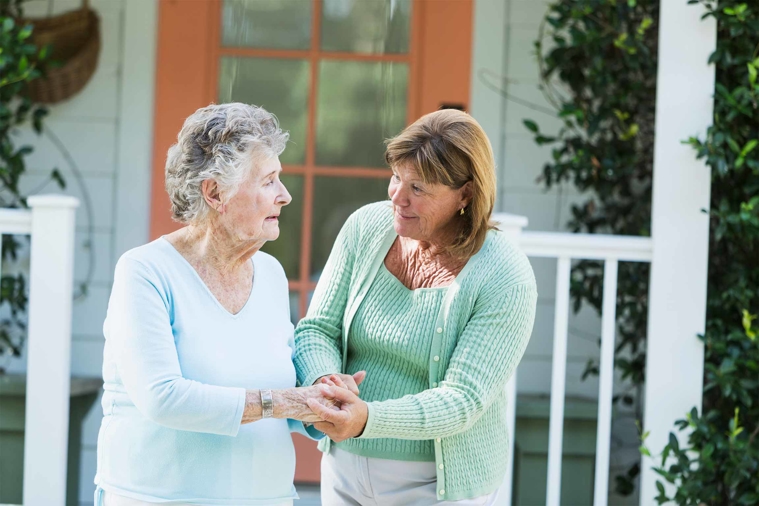Health & Wellness
Trust to Your Gut: Why You Shouldn’t Skip Your Colonoscopy

The idea of a colonoscopy doesn’t sound appealing to most, and no one looks forward to having one. However, colorectal cancer is the second leading cause of cancer death in the United States after lung cancer, when considering cancers that affect both men and women. In fact, according to the American Cancer Society, 1 in 24 people will be diagnosed with colorectal cancer in their lifetime. According to the Center for Disease Control (CDC) in 2021, 15,096 patients were diagnosed with colon cancer in California alone.
That’s why it’s more important than ever to make sure that you do not miss your colonoscopy if you are due for one. This is especially important if you have a family history of colon cancer in a first degree relative (parents, siblings, children). Typically screening with colonoscopy starts at the age of 45.
“The good news is that with screening colonoscopy, pre-cancerous polyps can be found early before they become a cancer. Screening can also identify early cancers, potentially minimize the need for chemotherapy through early surgical removal, and improve survival for patients,” shares Daniel Ojala, DO, a general surgeon at Adventist Health Ukiah Valley.
Dr. Ojala recommends that patients of all ages support their gut health with daily fiber intake either through plant-based sources, or over the counter supplements. Patients should avoid substances that cause cancer and remain vigilant in reporting any changes in bowel movements. Any changes in “regular” bowel movements including bleeding, new constipation, abdominal pain, or diarrhea should be reported to a primary care physician for further evaluation.
It’s also important to tell your physician if you have a family history of colon cancer as they may recommend having a colonoscopy earlier than recommended.
“Colonoscopy remains the gold standard for colorectal cancer screening since it can help physicians detect cancer at its earliest stage, when it’s more treatable. This procedure can also help prevent colon cancer through the detection and removal of precancerous growths called polyps,” explains Dr. Ojala.
Colonoscopy is a technical term for a procedure that looks at the inside the colon with a camera. This is more accurate than a CT scan for finding cancer, as a CT scan cannot evaluate the lining of the colon where cancer starts. Colonoscopy is typically performed by a gastroenterologist, or a general surgeon. At Adventist Health Ukiah Valley, a colonoscopy is performed by both types of specialist physicians. Colonoscopy is a same-day procedure. Typically, patients come to the hospital for the procedure and then go home after. During a colonoscopy, a long narrow, flexible tube with a camera at the end is used to evaluate the rectum and colon. “Colonoscopy can also detect other conditions such as colitis, inflammatory bowel disease, and diverticulosis. The main goal for screening, however, is to identify precancerous or cancerous polyps, which are growths on the inside the colon. If polyps are found, they can be removed at the time of colonoscopy. On occasion patients may need an additional colonoscopy to remove larger polyps,” Dr. Ojala explains.
When should you start getting a colonoscopy?
The U.S. Preventative Task Force recommends that everyone begins colonoscopy at age 45, and generally every 10 years thereafter until they are age 75 if no high-risk polyps have been found. However, screening may be recommended to start sooner for those who have a personal or family history of colon cancer, or in those with conditions that pose increased risk of developing colon cancer. If your primary care physician recommends a screening colonoscopy, they will send a referral to a gastroenterologist or to a general surgeon like Dr. Ojala.
Is colonoscopy prep as bad as it sounds?
You’ve probably heard about colonoscopy prep from people you know, who may describe drinking the gallon of solution, but it is typically not as bad as it sounds. Significant improvements have been made to the medications over the past 10 years.
To get ready for your colonoscopy, you will be instructed to take prescribed laxatives, which will cause diarrhea. Diarrhea will last several hours. There are various types of these medication that your doctor may prescribe, however they work in similar ways with the same goal --clean out the colon. This is important because the colon, which is normally filled with stool, needs to be empty so the camera can see all the polyps or pre-cancerous lesions for removal. After taking the laxatives, you will continue to have watery bowel movements until your colonoscopy.
After the prep, the hard part is over.
After you’ve checked in at the hospital and are ready for your colonoscopy, your surgeon, or gastroenterologist will recommend anesthesia, so you can be asleep and not experience or remember the procedure. The colonoscopy usually takes between 20 and 60 minutes to complete. Once in the endoscopy room, you will lie on your side, become sedated, and your doctor will insert a colonoscope into your rectum. This scope is a thin tube with a tiny video camera at the tip that allows the doctor to see inside your rectum and colon to look for polyps or other abnormalities. If there are polyps present, your doctor will remove them because they are not necessary and because most colon cancers grow from polyps. In a way, removing polyps can prevent colon cancer right then and there! Your doctor may also sample any other abnormalities. Everything that is removed is sent to a pathologist who studies the tissue under a microscope and looks for pre-cancer, cancer, or other diseases.
What happens next?
After your colonoscopy is complete, your doctor will discuss the procedure with you and, if you had polyps removed, or if they took additional tissue samples for pathological examination. Your doctor will let you know when to expect the results of any tests or biopsies, which usually takes 1-2 weeks.
Since you would still be experiencing the effects of anesthesia, you will need to have someone else drive you home. Depending on how many polyps were discovered, and if the polyps were pre-cancerous, your doctor may recommend that that you have a colonoscopy sooner than the standard 10-year interval. But if you do not have any polyps, your doctor will likely recommend a 10-year follow up screening colonoscopy.
Dr. Daniel Ojala is a general surgeon who cares for patients ages 3 and up, for conditions such as hernias, colon cancer, small bowel obstructions, and provides trauma and acute care surgery including gall bladder surgery, appendectomy and screening colonoscopy.
Learn more about Dr. Daniel Ojala or make an appointment today.


